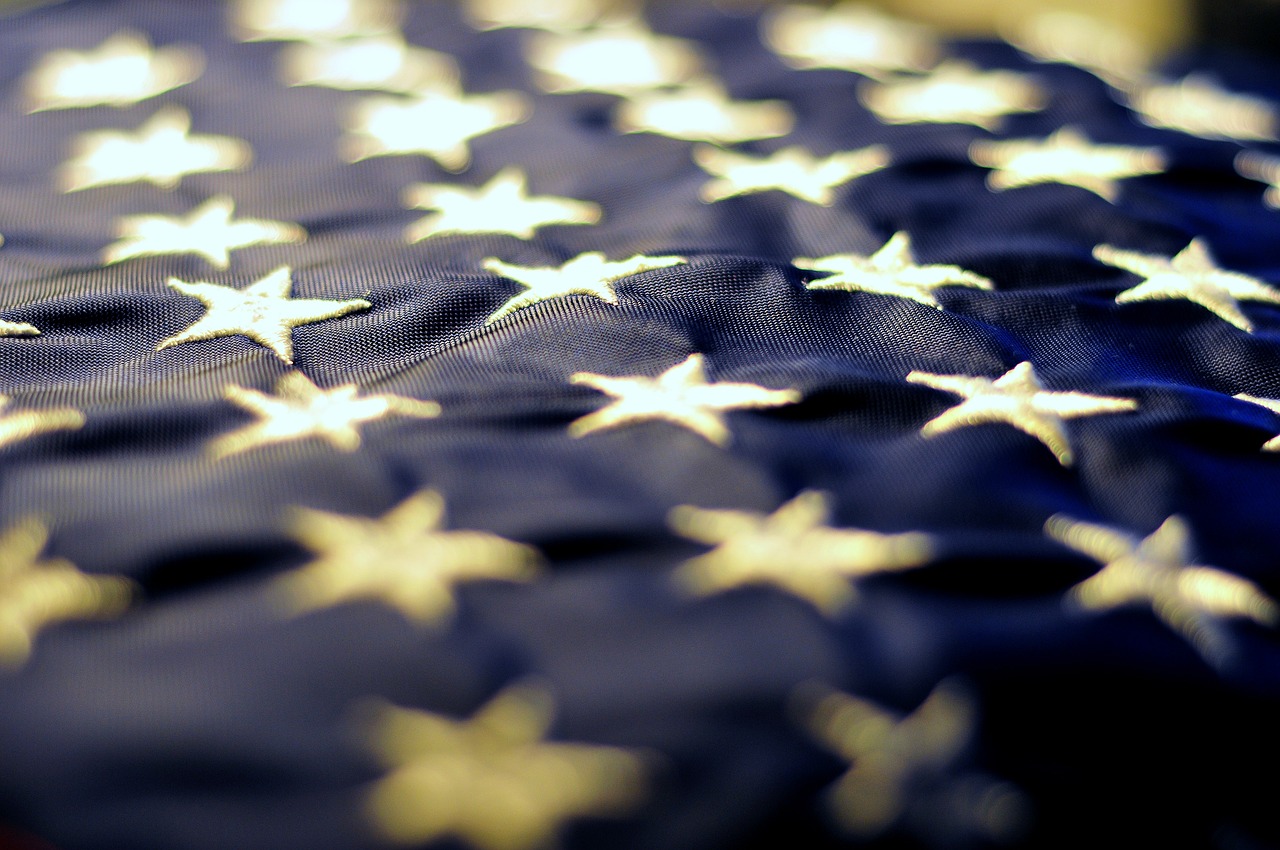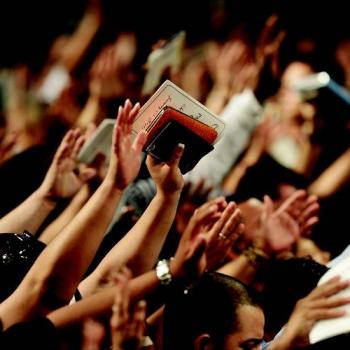
THE RELIGION GUY’S ANSWER:
That pertinent question above was the headline with David French’s February 26 New York Times column, which lamented confused definitions of the movement known as “Christian nationalism” (hereafter abbreviated as CN). The past few weeks have seen assorted articles pro and con, political squabbles, new public opinion polling, and even a Hollywood documentary. Here are aspects of recent attempts to understand and define this controversial movement.
The CN term is mostly defined and applied by outside critics, not much by individuals and groups that are thought to be actual participants. Scads of churchgoers may agree with this or that opinion labeled as CN but not think they’re part of such a movement. Also it’s important that CN is not the same thing as patriotism, the normal love of one’s homeland.
“Proud Christian” Trump
In the news: Candidate Donald Trump told a February convention of evangelical broadcasters he’s a “very proud Christian” and if he wins “you’re going to be using that power at a level that you’ve never used before.” He plans to investigate “harassment and persecution against Christians in America,” without mentioning a president’s duty toward the rights of other religions, and of non-believers.
Simultaneously, “theocracy” cries resulted from an Alabama Supreme Court ruling after an in vitro fertilization lab failed to protect parents’ stored frozen embryos. Chief Justice Tom Parker wrote that state law enshrines a “theologically based view of the sanctity of life” by which “human life cannot be wrongfully destroyed without incurring the wrath of a holy God.” But that language in his concurrence was not the court’s actual ruling about protecting frozen embryos. Republican legislators moved quicky to ensure the legality of in vitro procedures.
And then prominent Politico journalist Heidi Przybyla remarked on MSNBC that “extremist” CN followers “believe that our rights as Americans and as all human beings do not come from any earthly authority. They don’t come from Congress, from the Supreme Court. They come from God.” That repeats the Declaration of Independence’s “self-evident” truth that “all men are created equal and “endowed by their Creator with certain unalienable rights.” In the ensuing uproar, Przybyla posted a more thoughtful church-and-state analysis.
Political scientist Ryan Burge recently compared 2007 and 2021 Baylor University surveys on matters like government advocating “Christian values” or declaring the U.S. a “Christian nation” and found that such “Christian nationalism has declined significantly” among Catholics and even evangelicals, whose views are not that much different from Black Protestants. The biggest slippage occurred among Protestants in largely white “mainline” denominations, and respondents identifying as Democrats.
Varied definitions at issue
Turning to definitions, six CN proponents’ draft “Statement on Christian Nationalism & the Gospel” provides this summary: “Christian Nationalism is a set of governing principles rooted in Scripture’s teaching that Christ rules as supreme Lord and King of all creation, who has ordained civil magistrates with delegated authority to be under Him, over the people, to order their ordained jurisdiction by punishing evil and promoting good for His own glory and the common good of the nation.”
A softer version of that outlook is Missouri Senator Josh Hawley’s assertion in First Things magazine that Americans “must re-Christianize the great institutions of our society by rearticulating the gospel’s meaning for every aspect of life.”
The Public Religion Research Institute (PRRI) identifies CN followers by five central beliefs: “The U.S. government should declare America a Christian nation. U.S. laws should be based on Christian values. If the U.S. moves away from our Christian foundations, we will not have a country anymore. Being Christian is an important part of being truly American. God has called Christians to exercise dominion over all areas of American society.” On that basis, PRRI polling found 10% of U.S. adults are “adherents” who support “all” those tenets, while 20% are “sympathizers” who back “most” of them. That would mean some 77 million Americans are CN followers. Neighborly Faith, an evangelical organization that favors inter-group harmony, issued roughly similar numbers after testing 14 beliefs instead of five — but only 5% of those polled actually identifed themselves as CN followers.
A broad brush
A different broad-brush approach comes from Richard Allen Hyde, a California pastor with a master’s degree from Harvard’s Kennedy School of Government. He writes in ProvidenceMag.com that CN is a “broad public faith” shared by countless past monarchs, politicians, and all American presidents, in the sense that they’ve reflected a general Christian heritage in various ways and believed “their nation was a force for good in the world.”
Scholarly attention to CN took off with the 2020 book “Taking America Back to God” by sociologists Samuel Perry and Andrew Whitehead. In a subsequent essay they defined CN as the effort “to merge American and Christian identities, distorting both the Christian faith and America’s constitutional democracy” by demanding “a privileged place for Christianity in public life, buttressed by the active support of government at all levels.” They add to the PRRI list of beliefs support for prayer in public schools and display of religious symbols (as at the U.S. Supreme Court building!).
Yet another definition comes from Christians Against Christian Nationalism, a coalition backed by top officials of “mainline” Protestant denominations and the National Council of Churches, along with several like-minded evangelicals and Catholics. It says CN “seeks to merge Christian and American identities, distorting both the Christian faith and America’s constitutional democracy. Christian nationalism demands Christianity be privileged by the State and implies that to be a good American, one must be Christian. It often overlaps with and provides cover for white supremacy and racial subjugation.”
A big mistake
Columnist French’s view is significant due not only to his prime journalistic perch but wide prior experience as an attorney defending the rights of fellow evangelical Protestants at the Alliance Defending Freedom (where House Speaker Mike Johnson also worked). French decries core CN thinking, but argues it’s a big mistake for foes to define CN so broadly that it encompasses millions of Christians who simply want to bring their faith-influenced values into public discussions, like everybody else. He distinguishes such folk from the “actual Christian supremacists,” those “illiberal authoritarians who want to remake America in their own fundamentalist image” through politics and law.
The definition problem plays into the hubbub over “God and Country,” a hostile new documentary about CN produced by liberal Rob Reiner. ReligionUnplugged.com critic Joseph Holmes (who opposes core CN) said the film “constantly conflates conventional conservative Christians with Christian nationalists,” especially regarding abortion. The “dishonest” implication is that liberal activists preach “true Christianity” while conservatives exercise “idolatrous elevation of politics over faith.” Likewise, Daniel Darling of Southwestern Baptist Theological Seminary wrote in USA Today that the film, and CN foes in general, seem to say CN means “any Christian engagement in the public square.”













